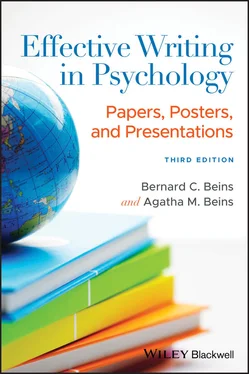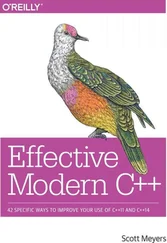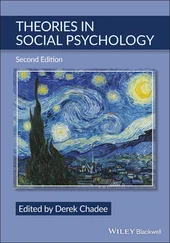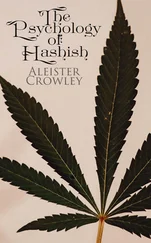Bernard C. Beins - Effective Writing in Psychology
Здесь есть возможность читать онлайн «Bernard C. Beins - Effective Writing in Psychology» — ознакомительный отрывок электронной книги совершенно бесплатно, а после прочтения отрывка купить полную версию. В некоторых случаях можно слушать аудио, скачать через торрент в формате fb2 и присутствует краткое содержание. Жанр: unrecognised, на английском языке. Описание произведения, (предисловие) а так же отзывы посетителей доступны на портале библиотеки ЛибКат.
- Название:Effective Writing in Psychology
- Автор:
- Жанр:
- Год:неизвестен
- ISBN:нет данных
- Рейтинг книги:3 / 5. Голосов: 1
-
Избранное:Добавить в избранное
- Отзывы:
-
Ваша оценка:
- 60
- 1
- 2
- 3
- 4
- 5
Effective Writing in Psychology: краткое содержание, описание и аннотация
Предлагаем к чтению аннотацию, описание, краткое содержание или предисловие (зависит от того, что написал сам автор книги «Effective Writing in Psychology»). Если вы не нашли необходимую информацию о книге — напишите в комментариях, мы постараемся отыскать её.
Effective Writing in Psychology: Papers, Posters, and Presentations
Effective Writing in Psychology's
Effective Writing in Psychology: Papers, Posters, and Presentations
Effective Writing in Psychology — читать онлайн ознакомительный отрывок
Ниже представлен текст книги, разбитый по страницам. Система сохранения места последней прочитанной страницы, позволяет с удобством читать онлайн бесплатно книгу «Effective Writing in Psychology», без необходимости каждый раз заново искать на чём Вы остановились. Поставьте закладку, и сможете в любой момент перейти на страницу, на которой закончили чтение.
Интервал:
Закладка:
Wiley also publishes its books in a variety of electronic formats and by print‐on‐demand. Some content that appears in standard print versions of this book may not be available in other formats.
Limit of Liability/Disclaimer of Warranty While the publisher and authors have used their best efforts in preparing this work, they make no representations or warranties with respect to the accuracy or completeness of the contents of this work and specifically disclaim all warranties, including without limitation any implied warranties of merchantability or fitness for a particular purpose. No warranty may be created or extended by sales representatives, written sales materials or promotional statements for this work. The fact that an organization, website, or product is referred to in this work as a citation and/or potential source of further information does not mean that the publisher and authors endorse the information or services the organization, website, or product may provide or recommendations it may make. This work is sold with the understanding that the publisher is not engaged in rendering professional services. The advice and strategies contained herein may not be suitable for your situation. You should consult with a specialist where appropriate. Further, readers should be aware that websites listed in this work may have changed or disappeared between when this work was written and when it is read. Neither the publisher nor authors shall be liable for any loss of profit or any other commercial damages, including but not limited to special, incidental, consequential, or other damages.
Library of Congress Cataloging‐in‐Publication Data
Names: Beins, Bernard, author. | Beins, Agatha, 1976– author.
Title: Effective writing in psychology: papers, posters, and presentations / Bernard Charles Beins, Ithaca College, Ithaca, NY, Agatha Meryl Beins, Texas Woman's University, Denton, TX.
Description: Third Edition. | Hoboken: Wiley, 2021. | Revised edition of the authors' Effective writing in psychology, 2012.
Identifiers: LCCN 2020024017 (print) | LCCN 2020024018 (ebook) | ISBN 9781119722885 (paperback) | ISBN 9781119722908 (adobe pdf) | ISBN 9781119722946 (epub)
Subjects: LCSH: Psychology–Authorship.
Classification: LCC BF76.7.B45 2020 (print) | LCC BF76.7 (ebook) | DDC 808.06/615–dc23
LC record available at https://lccn.loc.gov/2020024017LC ebook record available at https://lccn.loc.gov/2020024018
Cover Design: Wiley
Cover Image: © Eskay Lim/EyeEm/Getty Images
To Linda, Simon, Jenny, Evie, and Julian, our wonderful family that makes everything special
Preface to the Third Edition
A writing project is never really complete. We just decide that we are through with it or encounter a deadline. Anybody who has embarked on writing projects knows that there is always more to say; and, in retrospect, we invariably think of how it could have been better.
This book is no different. After the first edition, we spotted places where we thought we could have been clearer, our prose could have been crisper, and we could include new information. When we finished revising the book for the second edition, we tried to remedy the flaws that we saw in the first. (It's probably the case that nobody else saw a particular need to change things, but we did.)
For this edition, we again tried to improve the book. There are some topics that we thought were clearly in need of amendment. For example, how we describe certain groups of people has changed since the second edition; and because university library websites have changed, some of the guidance about searching for resources now seem obsolete. Revisions such as these are designed to ensure that our book continues to be a useful resource for your writing.
In addition, the American Psychological Association (APA) developed the seventh edition of its publication manual, necessitating significant revisions of the chapters on APA style. Some of the guidelines from previous versions of the manual represented an era when an editor may have had stacks of paper manuscripts that could become mixed up if not properly labeled. With electronic communication, some of those guidelines became irrelevant. This edition of our writing book presents the formatting that is most relevant to papers you are likely to write, but the full style manual contains much more information, and we encourage you to use it as a resource if you have a question or encounter a situation not covered in this book. We have tried to eliminate elements that you probably won't need to know about, which we hope should make it easy to find the information in the book that you need at any point in your writing.
We also found certain spots where, once again, we thought we could strengthen our writing and have tried to remedy those concerns. But as we noted at the beginning of this preface, the project is never really complete. We will undoubtedly spot aspects of this edition that, in retrospect, we would change. Nevertheless, we are confident that the book will provide you with the tools you need to produce high‐quality writing.
In creating this work, collaborating as a father/daughter team has once again been pure delight. It is rare to be able to combine the personal and the professional so wonderfully.
Finally, as with the earlier editions, the final product would not be complete without the work of the professionals at Wiley‐Blackwell, including Darren Lalonde, Monica Rogers, and Rajalakshmi Nadarajan.
Preface to the Second Edition
A writing project is never done. If you are thoughtful about your writing, you will always spot elements in your prose that you think could have been better. Thus writing a book like this one leads to a process, not a product. So, when we wrote the first edition of Effective Writing in Psychology , we recognized that it would be a helpful book with an interesting approach to writing. But there were also a few places where we wondered if we could have made our point more effectively or written more clearly.
So with this edition of Effective Writing we have had the opportunity to do it again, only better. Happily, we think that there were only a few instances in the first edition that needed clarification, expansion, or rewording. But we tried to take care of them to make the book even stronger. We hope you benefit from the changes we made.
In addition, as with any evolving domain, the technical aspects of writing in APA style have changed since the first edition of Effective Writing appeared. So we have adapted the sections on writing in APA style to conform to the sixth edition of the Publication Manual of the American Psychological Association . Many changes to the publication manual are minor, so you will be able to learn and implement them easily. It has been as delightful working on this edition as it was on the first edition of Effective Writing . A father‐daughter collaboration is a joy. Our work together constantly reminded us of our mutual respect at the personal and professional levels.
As always, though, a project like this does not happen by accident. It requires collaborative efforts on the part of many people. We are grateful to the professionals at Wiley‐Blackwell for their help, in particular Matt Bennett, Nicole Benevenia, and Julia Kirk.
Preface to the First Edition
Mark Twain recognized the importance of effective writing skills when he said, “The difference between the right word and the nearly right word is the same as that between lightning and the lightning bug.” We wrote this book to help writers generate their own version of lightning when they write papers, create posters, or develop presentations in psychology.
Читать дальшеИнтервал:
Закладка:
Похожие книги на «Effective Writing in Psychology»
Представляем Вашему вниманию похожие книги на «Effective Writing in Psychology» списком для выбора. Мы отобрали схожую по названию и смыслу литературу в надежде предоставить читателям больше вариантов отыскать новые, интересные, ещё непрочитанные произведения.
Обсуждение, отзывы о книге «Effective Writing in Psychology» и просто собственные мнения читателей. Оставьте ваши комментарии, напишите, что Вы думаете о произведении, его смысле или главных героях. Укажите что конкретно понравилось, а что нет, и почему Вы так считаете.












